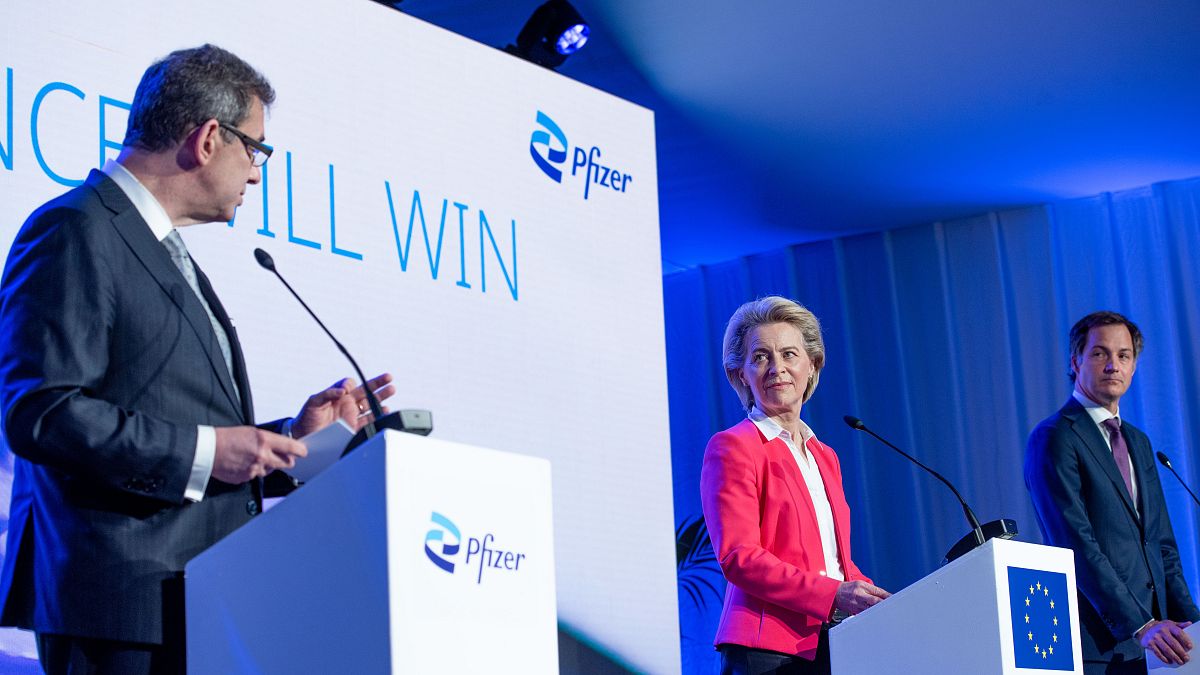The case opposing the New York Times and the EU Commission over its failure to disclose text messages between president Ursula von der Leyen and Pfizer CEO Albert Bourla about COVID-19 vaccine contracts has entered the hearing phase. A pivotal legal case between The New York Times and the European Commission heard in Luxembourg on Friday could set a new benchmark for public access to EU documents. The case was triggered by former New York Times Brussels bureau chief Matina Stevis-Gridneff, and focuses on transparency issues surrounding vaccine procurement during the COVID-19 pandemic, with a particular emphasis on the Commission's failure to disclose text messages sent between European Commission President von der Leyen and Pfizer CEO Albert Bourla.
In April 2021, The New York Times reported on text messages exchanged between von der Leyen and Bourla regarding vaccine contracts. The publication uncovered the existence of these messages during interviews with Bourla but faced hurdles when requesting access to them. The Commission claimed it could not provide the texts.
After repeated failed attempts to obtain the messages, The New York Times escalated the matter to the European Court of Justice (ECJ) in January 2023. While the case originated from vaccine procurement during the pandemic, the central question revolves around transparency. The New York Times argues that, under the EU's 2001 regulation on public access to documents, text messages qualify as "documents" and should.


















